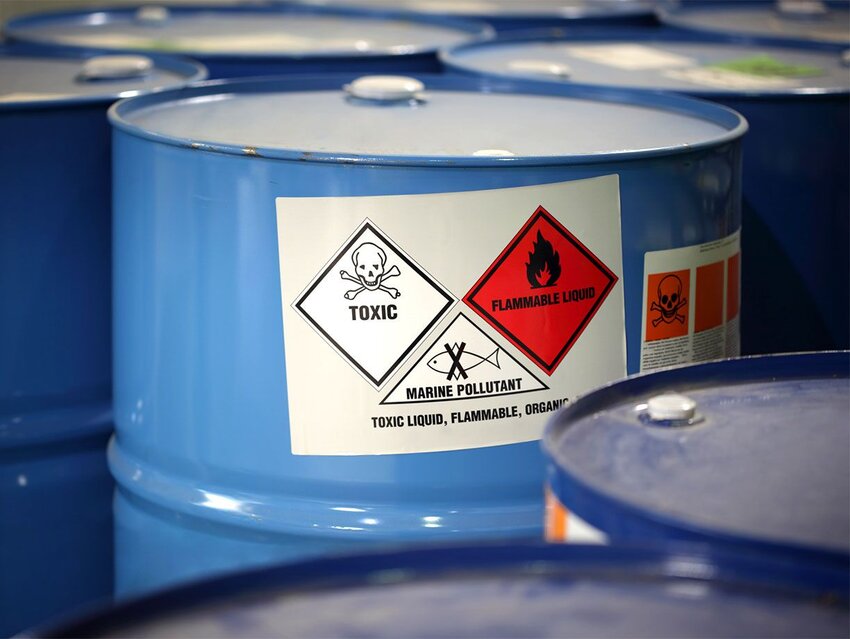Toxic workplace, toxic masculinity, toxic friend — the word "toxic" is bandied about rather casually these days, to the extent that it’s basically used to describe everything we don’t like. Its rise to buzzword status began in the second half of the 20th century, with the emergence of the pop-psychology trend that has only intensified with the ability of virtually anyone to have a social media pulpit. But what does "toxic" actually mean? Given the way we apply the adjective so liberally, shouldn’t we know?
Literally Poisonous
The Oxford English Dictionary notes that "toxic" first appeared in English in the 1660s, meaning "poisonous." It has roots in the Late Latin toxicus, meaning "poisoned," and the Greek toxicon, meaning "(poison) for use on arrows." Its definition remained stable until the late 19th century, when "intoxicated" appeared in the context of drugs or alcohol. OED now offers a second definition: "very harmful or unpleasant in a pervasive or insidious way."
In modern usage, "toxic" hasn’t let go of its poisonous definition completely. Although scientific evidence says the body has evolved its own mechanisms for self-cleansing, an entire industry revolves around "detox cleanses" and juices, powders, and treatments that promise to "flush toxins" from the body. This contemporary definition originated when Stanley Borroughs created "The Master Cleanse" in 1941, which claimed to rid the body of toxins through a 10-day diet of lemon, maple syrup, and cayenne pepper. The cleanse saw a resurgence in the early 1990s, when entrepreneur Peter Glickman repackaged the diet for the modern celebrity. Beyoncé, Jared Leto, and Demi Moore were all proclaimed practitioners. However, scientific evidence indicates that these types of cleanses are ineffective and unnecessary, and, at worst, harmful to your health.
It’s How It Feels
The shift from literal to figurative for "toxic" began somewhere in the 1970s, according to Gretchen McCulloch, internet linguist and author of Because Internet: Understanding the New Rules of Language. In an interview, she noted a spike on Google Books Ngrams between the 1970s and the 1990s, but the real rise of "toxic" in a figurative sense occurred between 1989 and 2006. "The use of literal words extended metaphorically is not a surprise, people do that all the time," she said. "But it seems like [toxic has] become more prevalent in this metaphoric use."
A 1972 issue of Voices, the journal of the American Academy of Psychotherapists, contained an early example of the phrase "toxic relationship," though communication and psychology expert Dr. Lillian Glass claims to have coined the term in her 1995 book "Toxic People." She defined a toxic relationship as one "[between people who] don’t support each other, where there’s conflict and one seeks to undermine the other, where there’s competition, where there’s disrespect and a lack of cohesiveness." In 1998, Carrie Bradshaw pondered "toxic bachelors" on the Sex and the City pilot, and in 2003, Britney Spears released her single "Toxic," about a not-worth-it paramour. By 2018, "toxic," in the figurative sense, was the OED Word of the Year, co-aligning with the 2017 New York Times story that broke the Harvey Weinstein case and propelled the #MeToo movement into national consciousness.
In his 2016 book Words on the Move: Why English Won't - and Can't - Sit Still (Like, Literally), linguist Dr. John McWhorter ascribed these shifts to the rise of the individual in the 18th and 19th centuries, stating, "One of the things that has always happened to a great many words is that they started showing what we mean, but end up being used to show how we feel."
Presently, this process is accelerated by the internet, according to McCulloch. "I think in the case of toxic, words can spread by people seeing people talking about them on social media." In other words, it’s easy for someone to read an Instagram infographic a friend posts about toxic people, and then apply it to their own life. She continued: "It’s like, OK, here’s a word that seems to be a convenient shorthand for this thing I don’t want to happen."
In other words, the figurative definition picked up speed because it was so broad that it could be applied to nearly anything. To use McWhorter’s explanation, "toxic" became a feeling, in that one knows when to apply it by the feeling they get from whatever toxic behavior they’re encountering.
Featured image credit: tunart/ iStock

